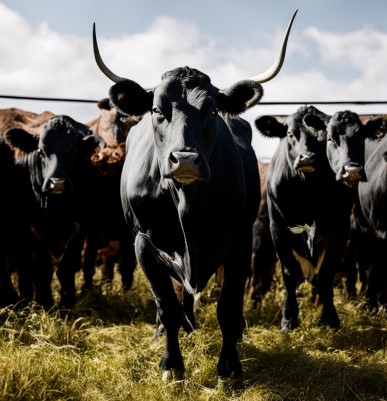The Impact of US Tariffs on Brazilian Meat Exports: 'It Won't Bring the Stallion Down'

Livestock consultant Victor Tonelli analyzed the impact of US tariffs on Brazil, the role of BRICS countries, and the current situation in Argentina's livestock industry for Canal E. He also discussed the industry's challenges, the importance of exports, and financing constraints in an environment of high interest rates and uncertainty.
Victor Tonelli mentioned the additional 50% tariffs imposed by the United States on Brazilian beef: "Brazil was the second-largest supplier or exporter of this product to the United States, and now, with these tariffs, it will practically disappear from this market. I would say it won't have much of an impact on the international market."
The possibility of Argentina taking Brazil's place is disappearing.
Regarding Argentina's potential for this position, he explained: "I don't think so. Yes, a small portion. An excellent option for replacing it is Australia , which also has a very high duty-free quota, allowing it to enter at a much lower cost than Argentina or other countries."
Regarding the role of BRICS and China's influence , Tonelli said: "I think rationality and pragmatism also dominate the markets. I don't see any risks or major risks."
A sharp drop of the barrel HEAD
On the other hand, he gave a disturbing overview of the local situation: "Unfortunately, the data from the first foot-and-mouth disease vaccination campaign , which became known a month ago, showed that over the past two years we have lost 3.4 million heads out of 54 million. The process of rebuilding the herd has not yet begun."
The source warned that the decline in supply would be felt for years to come: "We will again produce a very significant volume of cattle this year , very similar to what we had in the previous two years, so we should expect a decline in supply in 2026-2027."
Explaining why Argentina did not increase the number of kilograms per head of MEAT, he noted: “Exports were dependent on the will of certain parties that ruled Argentina, who sought to win votes through cheap meat or the famous Argentine table, so they banned, limited, closed and quantitatively controlled exports .”
Read together with it:
- The IEA sees a risk of a decline in oil production in Russia due to sanctions.The IEA sees a risk of reduced oil production in RUSSIA due to US sanctions , but maintains its production forecast. According to the IEA, Russian oil exports will remain unchanged.There is a "significant downside risk" to Russia's oil production forecast due to US sanctions, the International Energy Agency (IEA) said in a report.BLOOMBERG . The agency's experts believe that the latest US sanction...
- "Коллективы АПК способны решать любые задачи даже в непростых условиях". Назаров о заслугах сельхозпроизводителейЮрий Назаров 13 ноября, Минск. Обеспечение продовольственной безопасности страны - большое достижение трудовых коллективов аграриев, отметил управляющий делами Президента Республики Беларусь Юрий Назаров на торжественной церемонии награждения государственными и иными наградами работников АПК Управления делами Президента Республики Беларусь, передает корреспондент БЕЛТА. Торжественная церемония наг...
- Sustainable growth of the food and processing industries in BashkortostanIlshat Fazrakhmanov, Deputy Prime Minister andThe regional Minister of Agriculture noted that the development of these industries provides the population with essential food products and contributes to increased exports. Since 2020, agricultural exports from the region have doubled. Since the beginning of 2......
- Низкое предложение и устойчивый спрос: в Аргентине растут цены на мясоЦены на говядину снова выросли, что отразилось на полках супермаркетов и в мясных магазинах. За последние две недели розничные цены выросли на 8–12%, а на некоторые популярные отрубы рост превысил 15% по сравнению с октябрем. Тем не менее, продажи остаются высокими: потребители продолжают покупать, принимая новые цены и закрепляя тенденцию, которая повторяется каждый год в конце года, когда спрос ...
- Колумбия: При экспорте скота сертификация и прослеживаемость больше не являются необязательнымиВысококачественное животноводство, особенно при экспорте, требует сертификации и прослеживаемости. Это необходимые условия для выхода и конкуренции на многих международных рынках, а также на некоторых всё более требовательных внутренних рынках. Колумбийское животноводство не является исключением из этих правил, и, хотя предстоит ещё многое сделать, всё большее число ферм и компаний внедряют эти ме...
- Китайский рынок мяса: консолидация, меры безопасности и проблема субпродуктов«Мы завершаем выставку CIIE в Шанхае, в целом хорошую выставку, где мы видим консолидированные цены, как это было с начала года, но в то же время рынок ожидает решения по защитной мере, определения которой должны быть даны в конце ноября», — сказал он Valor Agregado Agro. Лидер пояснил, что глобальная ситуация характеризуется «колебаниями на международном рынке, вызванными интенсивной геополитичес...
- США объяснили снятие санкций с проекта АЭС в Венгрии с участием РоссииСША хотят, чтобы строительство АЭС «Пакш-2» завершилось, это необходимо, чтобы Венгрия стала энергетически независимой, заявил Рубио. Орбан сообщал, что после встречи с Трампом добился исключения из санкций Соединенные Штаты вывели из-под санкций проект АЭС «Пакш-2» в Венгрии, подтвердил госсекретарь Марко Рубио после встречи министров иностранных дел стран G7 в Канаде. Ранее об этом говорил венге...
- Ukrainian companies have been hit by US sanctions due to their ties to Iran.The United States imposed sanctions on two Ukrainian companies, considering them to be front companies for an Iranian agent engaged in procurement for the Iranian state corporation HESA, which produces, among other things, Shahed drones.Two companies registered in Ukraine have been subject to US sanctions related to Iran , according to a statement from the US Treasury Department's Office of Foreig...


